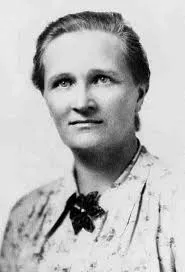MARIE-SOPHIE GERMAIN (1776 – 1831)

Germain was born in France into a distinguished family of the bourgeoisie, daughter of Ambroise-François Germain, master goldsmith.
She began studying mathematics at the age of thirteen, interested in works on the subject of her home library. His interest in mathematics came after reading the History of Mathematics by Jean-Baptiste Montucla. He continued with the treatise on arithmetic by Étienne Bezout and the differential calculus of A.J. Cousin, to continue, after learning Latin without any help, with the works of Isaac Newton and Leonhard Euler. He was self-taught, disguising himself as a man to be able to study in mathematical institutions (where only males could enter). He autographed his research and studies as "Mr. Leblanc" to hide his identity. His interest in mathematics was so much that he did everything he could to prove it to others. In order to attend the school in Paris, Sophie had to steal the identity of the M. Leblanc student and dress like a man, and only in this way was able to increase her knowledge and expose and present new ideas for some years.
Acknowledgments Received
In 1830 Gauss proposed her for the Honoris Causa Doctorate from the University of Göttingen, of which he was a professor and in which he had great influence. Although at that time his proposal was rejected, however, a few months after the death of Sophie, he received this title of doctor honoris causa by the University of Göttingen.
At present, the Institute of France, at the proposal of the Academy of Sciences, awards annually "Le prix Sophie Germain" to the researcher who has done the most important work in Mathematics. Likewise, a street in Paris and a Lyceum bear her name, and a plaque, in the house where she died (number 13 on Rue de Savoie), remembers her as a mathematician and philosopher.

THE ANECDOTE OF LIFE that caught my attention about Sophie Germain is that "she read everything that fell into her hands with a burning that worried her family. The Italian mathematician Guglielmo Libri, who will later become his friend, narrated how he overcame the obstacles that his parents had devised to curb his passion for Mathematics. So that she could not study in secret at night, they decided to leave her without light, without heating and without her clothes. Sophie seemed docile, but only in appearances; At night, while his family slept, he wrapped himself in blankets and studied by candlelight that he had previously hidden. One day they found her asleep on her desk, with the ink frozen, in front of a sheet full of calculations. Her tenacity overcame the resistance of her parents who, although they did not understand her dedication to Mathematics, ended up leaving her free to study. "
Links consulted:
History summarizes us among the 10 most important women in science. https://www.fayerwayer.com/2011/03/7-grandes-mujeres-de-la-ciencia/
Biography Sophie Germain. https://es.wikipedia.org/wiki/Sophie_Germain
Biography SophieGermain. https://matematicascercanas.com/2015/04/01/sophie-germain-francia-1776-1831/
If you want to participate in the women in science competition, please click on the following (link al post).
sigueme @mariu